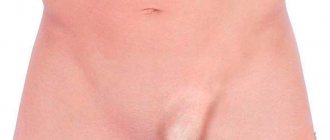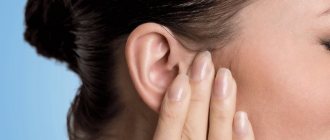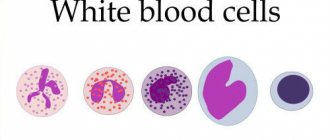Thursday, January 31, 2019
The phenomenon of urine retention does not occur in isolation, but as one of the signs of a certain disease of the urological, nervous or endocrine systems.
Ischuria occurs in representatives of both sexes, however, urinary retention in men, in particular in the elderly, is more common. This disorder is one of the accompanying symptoms of a well-known male disease - prostate adenoma.
Urinary retention is one of the pathologies associated with dysfunction of the genitourinary system. With this phenomenon, also called ischuria, patients encounter difficulties in the process of urination - they cannot normally, fully empty the bladder: after the completion of the act of urination, 50 ml or more of urine remains in this organ.
The phenomenon of urine retention does not occur in isolation, but as one of the signs of a certain disease of the urological, nervous or endocrine systems.
Ischuria occurs in representatives of both sexes, however, urinary retention in men, in particular in the elderly, is more common. This disorder is one of the accompanying symptoms of a well-known male disease - prostate adenoma.
Symptoms of urinary retention
The main symptoms of the pathology include the following signs:
- pain in the lower abdomen and pubic area;
- the presence of an extremely strong, sometimes unbearable urge to urinate;
- increased nervousness and psychomotor excitability;
- reduction in the process of urination up to its absence.
Other occurrences of urinary retention during urination are associated with diseases that cause ischuria.
So, with renal colic associated with the passage of a stone, the disorder is accompanied by pain in the groin.
In the case of urolithiasis or obstruction of the urethra, a likely symptom of the pathology is the presence of blood clots and a feeling of heaviness in the lower abdomen.
In the acute course of an incomplete pathology, the stream of urine is weak and thin; in order to pass urine, the patient has to strain hard and press on the lower abdomen. Since a large amount of urine constantly remains in the bladder, the process of urination does not bring this kind of relief.
Symptoms of chronic urinary retention develop gradually: first, the volume of urinary fluid decreases, a feeling of insufficient emptying occurs, and therefore the urge to go to the toilet becomes more frequent.
If you notice the first signs of urinary retention - stomach pain, difficulty urinating and often need to go to the toilet - consult a doctor immediately. It is important to determine the cause of the disorder as early as possible and begin treatment immediately.
Additional symptoms
Difficulty urinating is rarely the only symptom of a disease of the excretory system. Typically, patients have additional complaints that allow the doctor to identify the pathology or at least select suitable diagnostic tests.
Possible symptoms:
- The appearance of blood in the urine. Visible redness of urine may indicate injury, cancer, or urolithiasis.
- Pain during urination.
- Involuntary loss of urine.
- Pain in the perineum, lower back or abdomen.
- Increased body temperature.
- Expressed anxiety.
- Profuse sweating.
- Nausea and vomiting.
- Severe fatigue, weakness.
If the symptoms listed above appear, you should consult a doctor as soon as possible.
Causes of ishuria
The main causes of urinary retention are impaired urine outflow and improper functioning of the bladder due to a decrease in its contractility.
Sources of relevant reasons:
- diseases of the genitourinary system (adenoma and hyperplasia of the prostate gland, urolithiasis, stricture of the urinary canal);
- benign and malignant neoplasms (urethral tumor, prostate cancer);
- traumatic injuries of the genitourinary organs (mechanical);
- CNS disorders (spinal cord disorders, brain tumor);
- mental stress (they can cause reflex retention of urine);
- use of medications - sedatives, narcotics (pathology becomes a side effect);
- exposure to toxins.
Urinary retention and lack of urination have a different nature and character.
Mechanical blockade of the urethra is caused by strictures and obstruction of the urethra, stones, tumors, phimosis, swelling of the prostate due to cancer or adenoma.
A decrease in the contractile properties of the bladder is caused by muscular dystrophy of the organ and neurological diseases caused by dysfunction of the supply of nerves to its tissues.
The consequence of stress is inhibition of the reflex responsible for the act of urination.
Taking potent pharmaceuticals has a complex effect on the central nervous system, which impairs the functioning of the bladder.
| Code | Name | Price |
| 03.00 | Initial appointment with a urologist | 1,200 rub. |
| 03.02 | Repeated appointment with a urologist | 900 rub. |
| 03.03 | Initial appointment with a urologist (candidate of medical sciences) | 2,000 rub. |
| 03.04 | Repeated appointment with a urologist (candidate of medical sciences) | 1,200 rub. |
| 03.60 | Initial appointment with a urologist (MD) | 5,000 rub. |
| 03.61 | Repeated appointment with a urologist (MD) | 3,000 rub. |
| All prices of the men's and women's health clinic | ||
Difficulty urinating
Cystitis
43211 06 November
IMPORTANT!
The information in this section cannot be used for self-diagnosis and self-treatment.
In case of pain or other exacerbation of the disease, diagnostic tests should be prescribed only by the attending physician. To make a diagnosis and properly prescribe treatment, you should contact your doctor. Difficulty urinating: causes of occurrence, what diseases it occurs with, diagnosis and treatment methods.
Definition
Difficulty urinating is a symptom indicating that some pathological processes have occurred in the body, and is characterized by a violation of the outflow of urine through the urethra. Both men and women can face it.
Types of difficulty urinating
Difficulty urinating is a collective term that has many variations:
- difficulty before starting to urinate;
- pain at the beginning and end of urination;
- intermittent and weak stream during urination;
- drip of urine (stranguria);
- incomplete emptying of the bladder (ischuria);
- urine discharge in portions or drops;
- false and frequent urge to urinate that cannot be suppressed.
The causes of all these disorders are different.
In some cases, there is a real blockage of the urinary tract, and in others there are problems in the nervous regulation of the bladder.
Possible causes of difficulty urinating
Women and men have common causes of difficulty urinating, and there are specific ones that are characteristic only of one sex.
In women, the urethra is wide and short, but with prolapse of the vaginal walls, genital prolapse
, which occur with age, dysuria (impaired urination) can take the form of both pollakiuria (increased frequency of urination) and difficulty passing urine. In addition, prolapse of the uterus and vagina leads to obstruction (blocking) of the ureters, which also causes urinary retention.
Surgeries in the pelvic region
for urinary incontinence often lead to urethral obstruction and deterioration of urination.
The same situation occurs as a result of taking certain medications
, in particular anticholinergic drugs, estrogens, opiates, tranquilizers, antipsychotics and antidepressants.
With prolonged stagnation of urine, salts precipitate, which over time can form conglomerates or stones. Even small stones can cause difficulty in the flow of urine in men. Urolithiasis disease
is one of the most common causes of difficulty urinating. Its main symptoms are pain, the appearance of blood or pus in the urine, and a decrease or complete cessation of urine output. The localization of pain and the location of its return (irradiation) depend on the location of the stone. If the stone is in the kidney, pain in the lumbar region can be constant or periodic, and if it gets into the ureter, it can cause renal colic (an attack of unbearable sharp pain).
More often, renal colic develops during or after physical activity, drinking large amounts of fluid and may be accompanied by nausea and vomiting.
After renal colic, blood appears in the urine, but it is not always visible. Most often, microhematuria is observed (a small number of red blood cells in the urine). Blockage of both ureters by stones can lead to acute renal failure with associated symptoms - complete urinary retention, nausea and vomiting.
Difficulty urinating is also observed if the urinary canal is blocked by a tumor. The most typical example of such a pathology is prostate tumors.
in men. Benign (hyperplasia) or malignant proliferation of prostate tissue leads to a narrowing of the urethra, which runs inside the gland. In this case, a number of symptoms arise, which are united by the concept of “symptoms of the lower urinary tract”: frequent urge to urinate, not accompanied by complete emptying of the bladder, weak stream of urine and leakage of urine after urination, waking up at night to empty the bladder.
Reasons that may cause urinary retention also include sexually transmitted infections
. Infectious agents, entering the urethra and bladder from the mucous membrane of the genital organs, cause inflammatory processes - urethritis and cystitis, respectively. For these diseases, characteristic symptoms are pain when urinating, mucopurulent or purulent discharge, inflammation and sticking of the edges in the area of the urethra. If not treated promptly, this process can cause narrowing of the urethra.
The process of urination may be disrupted after injuries and surgical interventions on the spine
due to disruption of nerve conduction of the spinal tract. With spinal cord injuries, both acute urinary retention and difficulty emptying the bladder are possible. Clinical symptoms may include the inability to control urination, incoordination of the sphincters of the bladder and the urethra.
Postoperative acute urinary retention is characterized by the inability to empty the bladder independently, despite the presence of urge, and requires the installation of a catheter.
This situation occurs due to paresis of the muscles of the anterior abdominal wall and a reflex weakening of the contractility of the bladder, which is aggravated by the effects of anesthesia and relaxing medications. Urinary retention is especially often detected after proctological operations.
Poor urine output is observed in patients with musculoskeletal injuries
. Venous congestion in the pelvic organs and prostate, which can be supplemented by the effect of anesthesia during surgical interventions, significantly increases the risk of urinary retention.
Neurogenic causes make a significant contribution to the development of urinary disorders
. In these cases, the symptoms of urinary disorders are almost always accompanied by inconsistency in the work of the muscles of the walls of the bladder and its sphincter and manifests itself in diseases such as multiple sclerosis, myelitis, spinal strokes and spinal cord injury. Urination disorder is accompanied by various symptoms:
- increased frequency of urination (pollakiuria);
- false urge to urinate;
- urinary incontinence even with an unfilled bladder;
- a feeling of incomplete emptying of the bladder at the end of urination;
- interruption of the urine stream during urination;
- inability to immediately begin urination after the urge;
- weak urine stream pressure and the need to strain while urinating.
Based on the patient's complaints, one can judge the location of the lesion in the nervous system.
For example, with a stroke or tumors in the area of the right cingulate gyrus, short-term urinary retention, a weakened or absent urge to urinate, and a feeling of incomplete emptying of the bladder are noted. Symptoms of urinary disorders in these cases are always accompanied by severe disturbances in movement, breathing and swallowing.
In Parkinson's disease, the number of daytime urinations decreases to 2–3 times, while at night their number increases with full portions of urine (250–300 ml). In Alzheimer's disease, control over emptying the bladder is lost, so both urinary retention and urinary incontinence may occur.
Alcoholic and diabetic polyneuropathy contribute to the group of neurogenic urinary disorders
. Damage to peripheral nerve endings in this type of pathology is accompanied by difficulty starting urination, weakening of the urine stream and incomplete emptying of the bladder. The presence of residual urine leads to infection and inflammatory diseases.
Which doctor should I contact if I have difficulty urinating?
To identify the causes of difficulty urinating, consultation is necessary, and. If the disease is neurological in nature, further treatment is carried out.
Diagnosis and examination for difficulty urinating
Identifying the causes of difficulty urinating requires a thorough history taking into account symptoms associated with urination, previous diseases, operations and injuries, and hereditary predisposition. In men, as a screening for prostate diseases, a PSA test is performed, if necessary, a palpation study of the prostate gland, and in women, the uterus and vagina.
Pathogenesis
Various variants of pathogenetic processes lead to impaired urination and urine retention.
The essence of mechanical ischuria (the most common type of pathology) is the fact of a barrier in the lower part of the urinary ducts. Phimosis, the release of stones from the bladder cavity, and prostate pathologies can block the passage of urine. Obstructions in the form of blood clots appear after surgical interventions in the bladder area or urethral bleeding.
In most cases, ischuria progresses slowly. The exception is the passage of a stone or blood clot - then delay and pain during urination occurs suddenly and sharply. This often happens at the time of urination and is accompanied by severe pain.
The pathogenesis of impaired urine outflow caused by dysfunction of the urinary ducts is more complex: in this situation, the fluid cannot come out not because of obstacles, but because the bladder has lost the ability to contract normally. Neurological and stress disorders lead to disruption of the opening of the urethral sphincter or suppress natural reflexes - this gives rise to ischuria.
Classification
According to the nature of the urinary outflow disorder, urinary retention can be complete (there is no way to urinate naturally) and incomplete (urine excretion occurs, but weakly, residual urine is inside the bladder).
In accordance with the etiology, clinical picture and duration, the pathology is divided into three types:
- Acute urinary retention. This option is characterized by suddenness and sharp pain. Its causes are predominantly mechanical in nature and consist of obstruction of the urethra by a calculus or blood clot. Less commonly, this type is caused by a neurogenic factor. The incomplete form is characterized by weak urination when the muscles are tense or when pressing on the lower abdomen.
- Chronic urinary retention. It occurs in parallel with urethral strictures, prostate diseases, and the growth of neoplasms of the genitourinary system. In incomplete form, residual urine can reach significant volumes (up to 1 liter). The full form occurs infrequently - it involves long-term catheterization.
- Paradoxical ischuria. As a variant of the pathology, it is less common and combines the impossibility of intentional urination with the constant uncontrolled outflow of a small amount of urine. This type of ischuria can be mechanical, neurogenic or pharmaceutical in nature.
The disorder, especially if left untreated, can change appearance and shape. Thus, acute pathology often becomes chronic, and incomplete ischuria becomes complete.
Causes of urinary obstruction in men
Problems with urination in men are most often caused by the following inflammatory, tumor or infectious diseases of the genitourinary system:
- urolithiasis disease;
- benign (adenoma) or malignant tumor of the prostate;
- infectious inflammation of the urethral canal;
- inflammatory diseases of the prostate gland;
- inflammatory diseases of the external genitalia;
- sexually transmitted infections.
Morning trips to the toilet are the most painful for men. The stream is often weak, intermittent, and considerable effort must be made to drain urine; complete emptying does not occur, and frequent urges to urinate occur throughout the day.
Against the background of problems with urination, men may experience erectile dysfunction and a significant deterioration in general well-being. Pain and discomfort, the inability to completely empty the bladder often lead to mental disorders.
Problems with urination in both men and women can also be caused by uncontrolled use of diuretics, the development of heart failure, diabetes, damage to the brain or spinal cord due to neurological disorders or surgery, and for other reasons.
If such problems arise, you need to consult a specialist and identify the cause of the disease, and then undergo a course of treatment. To establish an accurate diagnosis, the doctor prescribes a set of studies:
- general, biochemical blood and urine tests, culture of a smear from the urethra;
- vaginal smear to check for STIs;
- Ultrasound (TRUS), CT, MRI of the genitourinary system;
- urolophmetry;
- urethroscopy;
- urography;
- radiography of the kidneys, etc.
Diagnostics
Anyone who has encountered such an unpleasant problem cannot help but think about how to get rid of urinary retention, what to do in this case and where to start?
The fight against any pathology begins with an examination.
In our center, diagnostics are carried out comprehensively, using modern equipment and include a number of necessary procedures:
- initial physical examination by a urologist and conversation with the patient - palpation examination of the bladder and perineal area, taking into account the patient’s complaints and medical history;
- Ultrasound of the genitourinary system – detection of neoplasms, edema, adenomas and other disorders;
- neurological diagnostics - if there is a suspicion of a neurogenic or psychosomatic nature of the pathology, consult a nephrologist;
- endoscopic (instrumental) methods - cystocopy (detection of stones, blood clots, strictures) and retrograde cystourethrography (determination of the amount of residual urine).
An accurate diagnosis will allow you to obtain data about the characteristics, nature, type, specific development of the pathology and determine its treatment.
Where to go if you have problems with urination?
There is a myth that absolutely all problems associated with urinary disorders are the field of activity of urologists. In fact, often the problem is not hidden in the urinary system itself (or, on the contrary, it is a serious disease that is treated by doctors of several specialties).
When characteristic complaints first occur, you should contact your family doctor or therapist. A general specialist will determine the specifics of the problem and will be able to prescribe treatment independently or refer you to the right specialist doctor.
The causes of difficulty urinating are usually determined during an appointment with a urologist or nephrologist. Also, to identify related disorders of the genitourinary system in women, gynecologists and neurologists can be involved. If the situation becomes serious, periodic complaints of difficulty urinating develop into a situation where independent urine excretion is impossible, you need to call an ambulance. Emergency physicians will place a urinary catheter and suggest a site for subsequent hospitalization. Only in a hospital can the cause of acute urinary retention be reliably determined and successfully eliminated.
Therapeutic treatment of urinary retention
In our clinic, treatment is prescribed taking into account all the nuances of the patient’s pathology identified during the examination.
If it is possible to do without surgical intervention, individual conservative therapy is used:
- vitamins – patients with neurogenic ischuria are advised to use complexes of vitamins C and E, as well as vitamin preparations that have an antioxidant effect;
- physiotherapeutic treatment - warm compresses on the stomach and warm baths with chamomile decoction help relieve the symptoms of the disease; the exercise therapy complex helps strengthen and trains the pelvic muscles that control the functioning of the bladder, helps reduce the intensity of the urge to urinate; special therapeutic exercise procedures are used for pathologies caused by disorders of the prostate gland;
- traditional treatment - it is used as additional therapy under the strict supervision of a doctor and involves daily compresses of raw onions on the abdominal area, as well as treatment with a variety of herbs (use of chicory tincture, decoction of birch buds and dill seeds and other herbal preparations);
- homeopathy – homeopathic preparations are used in the form of aconite, belladonna, phosphoric magnesia and other remedies (their use requires special caution; if the precise recommendations of a specialist are not followed, it can be dangerous);
- drug therapy - determined by the specifics of the pathology (antibacterial drugs are used for acute inflammatory processes, diuretics are used for renal edema, sedatives are used for mental disorders, etc.)
The features of therapy are also determined by the age of the patient: for example, urinary retention in older people can be effectively treated with physiological procedures and herbal preparations.
Urine formation and excretion
The most important function of the excretory system is to cleanse the blood of harmful and ballast substances.
Thanks to metabolism in tissues and organs, a large number of chemical compounds are constantly formed, which must be removed to the outside to maintain a constant internal environment. First of all, these are protein structures, the breakdown of which produces nitrogenous compounds. The kidney nephrons filter the blood every minute and excrete waste substances in the form of urine. Urine formed in the kidney tissue gradually enters the ureters and accumulates in a special storage organ, the bladder. The muscular sphincter prevents the spontaneous release of fluid from this organ, so the further process of transporting urine is carried out only consciously. The appearance of the urge to urinate forces a person to decide to relax the sphincter and remove urine from the body through the urethra.
The process of urination is influenced not only by the above organs. Thus, the prostate gland is an important organ of the pelvis. Part of the urethra passes through this organ, so prostate diseases can affect fluid excretion. Also, urination can be indirectly affected by the internal genital organs. In some cases, anatomical features are also taken into account: in women, a high risk of diseases of the excretory system is due to a short urethra.
Surgery
If therapy fails to help, doctors resort to surgical treatment of the disorder.
First aid for full-form urinary retention (in acute cases) is possible by installing a urethral catheter - a special tube to allow urine to exit the bladder cavity.
The duration of this procedure depends on the severity of the pathology.
Urological surgeons also practice installing a urinary tube into the bladder by puncturing the abdominal wall (cystostomy) - this allows the outflow of urinary fluid to be restored. This technique is advisable if the cause of the inability to urinate is a stone stuck in the duct or a neoplasm has blocked it.
In these cases, the patient needs surgery to remove the corresponding barriers.
Treatment
Conservative therapy
The list of therapeutic measures is determined depending on the nature of the disease:
- Cystitis.
In order to combat infection, antimicrobial drugs from the groups of nitrofurans, cephalosporins and fluoroquinolones, and herbal uroseptics are prescribed. Antispasmodics and NSAIDs are used to reduce pain. Presacral, intravesical and prevesical blockades with local anesthetics and bladder lavage can be performed. As part of physiotherapeutic treatment, UHF, medicinal electrophoresis, ultrasound, and inductothermy are used. - Neurogenic MP.
To reduce detrusor tone, stimulate blood circulation, and improve local metabolic processes, alpha-blockers, calcium antagonists, antidepressants, anticholinergics, and succinic acid preparations are recommended. Botulinum toxin is injected into the wall of the organ. The listed activities are supplemented with special exercise therapy complexes, detrusor training, ultrasound, thermal procedures, laser therapy, and electrical stimulation. - Prostatitis.
The basis of treatment is antibacterial agents, which are selected taking into account the sensitivity of the microflora. The duration of the course depends on the form of the disease (acute or chronic). A prostate massage is performed to eliminate congestion and activate blood flow. Ultrasound, laser therapy, and sometimes medicinal microenemas are prescribed. - BPH.
Drug therapy includes alpha-blockers, antibiotics, alpha-reductase inhibitors, herbal medicines, and immunocorrectors. In the presence of atherosclerosis, which prevents the flow of medications into the prostate, vasodilators are indicated. After completion of antibiotic therapy, probiotics are recommended to prevent intestinal dysbiosis. - Balanitis.
Men are advised to practice careful genital hygiene using anti-inflammatory herbs and local antiseptics. Topical corticosteroids and dermatotropic immunosuppressants are prescribed. Depending on the etiology of the inflammatory process, antibacterial or antifungal agents are needed. - Cavernite.
In case of acute inflammation, hospitalization in a hospital is required. At the stage of infiltrate formation, antibiotics, NSAIDs, and immunostimulants are used. Urethral instillations, electrophoresis, UHF, magnetic therapy, laser therapy are performed. For chronic cavernitis, treatment is outpatient. Includes immunostimulants, anti-inflammatory drugs and physiotherapy.
Surgery
If men have difficulty urinating, the following surgical interventions can be performed:
- Urethral calculi:
advancement of the stone from the urethra into the detrusor followed by lithotripsy, external ureterolithotomy, removal of the calculus from the posterior urethra through the bladder with the application of an epicystostomy. - Tumors of the urinary tract:
chemical, radio wave and laser removal of condylomas, surgical excision of benign neoplasia, transurethral or circular resection of the urethra, amputation of the penis for cancer, TUR, resection of the bladder, laser en-bloc resection, cystectomy. - Prostate diseases:
transurethral resection, thulium or holmium laser enucleation, laser vaporization, adenomectomy, brachytherapy, radical prostatectomy. - Cavernitis, balanitis:
opening of a penile abscess, emergency amputation in case of gangrene development, correction of penile curvature in the long-term period after cavernitis, circumcision for recurrent balanitis with phimosis. - Emergency conditions:
dissection of the strangulating ring upon admission and circumcision after the inflammatory phenomena have subsided with paraphimosis, surgery for torsion of the spermatic cord, orchiectomy for testicular necrosis due to torsion.
Complications and consequences
If you do not contact a specialist in a timely manner, the consequences of urinary retention can be the most tragic.
Advanced acute forms of ischuria lead to diseases such as hydronephrosis, acute renal failure, and chronic forms lead to chronic kidney diseases.
The consequence of stagnation of residual urine is tissue infection, resulting in the development of cystitis, pyelonephritis and other diseases.
Residual urine in the bladder is prone to crystallization - because of this, stones form in the organ.
In the absence of treatment, incomplete delay of the chronic type often transforms into a more severe one - complete and acute.
Prevention
Prevention of the development of ischuria is timely diagnosis and elimination of its causes.
To prevent the development of the disorder, contact a specialist at the first symptoms.
For the purpose of prevention, it is advisable for men over 45 years of age to undergo an examination by a urologist annually, as well as a urine test and ultrasound of the genitourinary organs.
The risk group also includes women who have given birth and had abortions many times, and those representatives of the fairer sex who have undergone gynecological operations or suffer from diseases of the pelvic organs. These women should also visit a urologist once a year.
Diagnosis of pathology
Diagnostic measures begin with collecting anamnesis. It is important for the doctor to know how long ago the unpleasant symptoms appeared and what contributed to their manifestation. The urologist takes into account the gender, age, and physiological characteristics of the patient. It is necessary to conduct various tests, especially with regard to determining the frequency of urination and the volume of urine excreted in one act.
Other specialists are involved in the examination of the patient: nephrologists, neurologists, immunologists, endocrinologists. It is important for doctors to have a complete picture of the pathology.
To determine the extent of the problem and its causes, doctors first prescribe laboratory blood tests, urine tests, and prostate secretions (for men). General and biochemical - indicate the inflammatory process, changes in metabolism in the body, the presence, increase or decrease of macro- and microelements. A blood test for hormones indicates possible abnormalities in the functioning of the endocrine glands. For diagnosis, it is important to determine the function of the prostate and gonads.
Next, urologists move on to instrumental examination methods:
- Cystometry, electromyography, sphincterometry - to assess the bioelectrical activity of muscle structures;
- Cystoscopy – to identify bladder problems (overstretching of the walls, inflammatory processes);
- Survey and excretory urography, retrograde urethrography with a contrast agent - to determine the area of the lesion that caused the symptoms;
- Ultrasound of the pelvic organs, genitals - allows you to notice neoplasms, the inflammatory process, their location, size, shape;
- MRI, CT – helps to see the organs of the urinary system in three projections.
Forecast
Modern technologies and advanced techniques used in our clinic guarantee favorable prognoses in the vast majority of cases of treatment of urinary retention.
In our center, ischuria is successfully treated - effective and timely treatment aimed at eliminating its causes gives positive results, and relapses of the pathology practically do not occur.
If you are alerted by the first alarming symptoms, do not waste time: call us, make an appointment - our doctors are always ready to help you!
FAQ
After ejaculation I want to pee, but I can’t. This is fine?
— During an erection, it is normally difficult to urinate. If the erection has passed, but it is still difficult to urinate, it is worth dealing with this in person.
Over the past two years, a not very pleasant problem has appeared. Two or three times during this period, before menstruation there is urinary retention and obvious swelling under the eyes. With menstruation, a lot of fluid is released. What needs to be examined and what is the reason?
- This is how premenstrual syndrome manifests itself. If these symptoms cause concern, then you can take diuretics on such days.
Ask a Question









